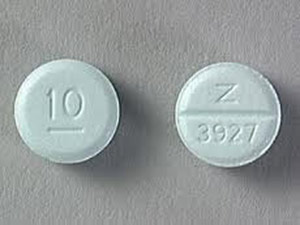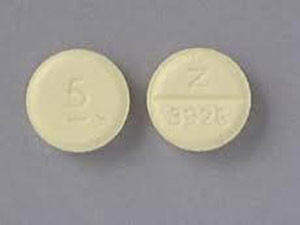Buy Diazepam Online
Showing all 3 results
Diazepam: basic overview
Diazepam is a generic drug that helps treat episodes of increased seizures such as breakthrough or cluster seizures. Doctors worldwide recommend this medication to people who are already taking any medicine to control their seizures.
Diazepam generic is also available as various brand name drugs such as Valium, Diastat, and Diastat AcuDial. You can buy Diazepam online from our website in both generic as well as a brand name form.
Diazepam is only under the recommendation for short-term treatment of seizure attacks. It would help if you did not take it daily to prevent ongoing seizures. Diazepam works by calming the brain and nerves (central nervous system) as it belongs to the benzodiazepines category of drugs.
Diazepam is not recommended for children younger than six months because the risk of side effects is higher than the profits of taking this medication.
What are the of taking Diazepam?
Diazepam can cause some serious health issues besides helping you deal with seizures. The risk is higher in people of specific groups.
-
Sedation and breathing problems
Taking Diazepam with opioids may result in tiredness, severe drowsiness, difficulty breathing, and even death. Some people with chronic pain might already be taking opioids before doctors prescribe Diazepam. Inform the doctor about your medications and get medical help if you develop trouble breathing or difficulty waking up readily.
-
Diazepam dependence and withdrawal
If you use Diazepam for a long time or at high doses, you may become physically dependent on this drug. If you stop taking Diazepam suddenly, you could potentially face unpleasant Diazepam withdrawal symptoms such as seizures.
-
Loss of concentration
Diazepam doses can make you sleepy, affecting your focus and concentration. Avoid activities like driving and or operative machinery that requires you to be alert until you know Diazepam will affect you.
-
Pregnancy and lactation
Diazepam can cause harm to your unborn baby, so tell your doctor about the pregnancy or your plan to conceive before initiating treatment with this medication. Having seizures during pregnancy is hazardous and even fatal for both mother and the baby.
You should not breastfeed your nursing baby while taking Diazepam as this medication can pass through the breastmilk and cause danger to your newborn’s life.
-
Multiple drug interaction
Diazepam can interact with several medications, especially those drugs that cause sleepiness or slow breathing. Be careful and ensure to tell your doctor about the medicines you are taking, including prescription, non-prescription, over-the-counter (OTC) medicines, herbs, vitamins, and supplements.
Diazepam dosage
- For anxiety, the typical starting dose for adults is 2 mg orally two to four times daily. For the injectable version, the usual amount of Diazepam is between 2 mg and Buy Diazepam 5 mg, with a repeated amount in 3 to 4 hours if needed as per the doctor’s instructions.
- For muscle spasms, the typical starting dose for adults is 2 mg orally three to four times a day. For the injectable version, the usual amount of this medication ranges from 5 mg to 10 mg, with a repeated amount in 3 to 4 hours if needed as per the doctor’s instructions.
- For alcohol withdrawal, the typical dose for adults is 10 mg orally three to four times during the initial 24 hours, followed by 5 mg three to four times daily as required.
- For Diazepam injectable solution, the usual first dose is 10 mg, and the following amount can range from 5 mg to 10 mg in 3 to 4 hours as needed.
- For seizures, the typical starting dose for adults is 2 mg orally two to four times daily. If the outbreak continues longer than five minutes, the usual amount for adults ranges from 5 mg to 10 mg through an IV line.
- Your pharmacist may ask you to repeat the same dose every 10 to 15 minutes if the attacks keep occurring until a total of 30 mg is consumed.
- For surgery-related anxiety: depending upon the procedure type of surgery, you can receive a dosage ranging from 5 to 20 mg shortly before the process begins, either through an injection into a muscle or IV line.
- Geriatric dosage (for people over 65 years): the typical starting dose for all uses is either 2 mg or 2.5 mg orally once or twice a day. Your medical healthcare provider will ask you to raise the dosage gradually only if necessary.
- Pediatric dosage (for children over six months old): the usual initial dose for all uses ranges from 1 mg to 2.5 mg orally three to four times a day. The medical healthcare provider may ask you to raise the dosage gradually only if necessary.
Diazepam overdose
An overdose of Diazepam may occur if you take this medication for a longer duration and in doses higher than recommended. Diazepam overdose can be fatal if you take it with opioid medicine, alcohol, or other drugs that slow down breathing or cause drowsiness.
Diazepam overdose symptoms may include loss of coordination, severe drowsiness, shallow breathing, limp or weak muscles, or coma.



